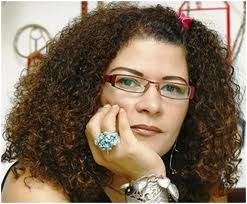The Supreme Electoral Commission (SEC) announced Friday the results of the elections held in four remaining constituencies to officially mark the end of parliamentary elections, the third step of a roadmap towards democratic transition established on 3 July 2013.
Ahead of the parliament’s first session, which is expected to begin in early 2016, disputes between political forces have escalated once more and are expected to have further influence on the “distribution of powers” inside the parliament.
Causing tension between members of various political parties Sameh Seif El-Yazal, the leader of the winning electoral alliance “For the Love of Egypt”, which issued calls for a more expansive parliamentary coalition that would include the Free Egyptians Party (FEP) among others.
FEP, which obtained most parliamentary seats in comparison to other parties, has witnessed recent internal conflicts over joining the coalition.
Senior FEP party member Osama El-Ghazaly Harb announced his resignation Saturday. His office manager confirmed to Daily News Egypt that the decision to resign is three days old but the announcement was pending negotiations, which have failed.
On Friday, FEP called for an urgent meeting of its political bureau to issue “penalising measures against party members who joined El-Yazal’s coalition, against the party’s regulations”.
Of those, May Mahmoud, who won a parliamentary seat as a candidate with For the Love of Egypt, told media that she was not invited to attend their meeting as member of the list and that she saw no conflicts necessary for her response to “supporting her country”.
FEP joined For the Love of Egypt with nine candidates but later rejected the post-electoral coalition.
It also found itself in a crisis, when El-Yazal called on members of the electoral alliance to “drop their political party and ideological affiliation, and join a larger parliamentary coalition run by himself and other strong state supporters”.
FEP founder and business tycoon Naguib Sawiris said such a coalition “destroys the democratic process” and compared them to what he called “Muslim Brotherhood sheep”, in an interview with Al-Youm Al-Sabea newspaper published Saturday.
Sawiris further claimed that state security bodies pressured party members and attempted to prevent them from making it to parliament. “Those who do not want to have a second coalition might oppose their wishes or at least try to limit the number of voices that are outside [El-Yazal’s] coalition”, he said.
“This is only a natural consequence of how the party managed its affairs during elections, proof of the absence of any party cohesion and an indicator for more disputes of that type,” Youssry Al-Azabawy from Al-Ahram Centre for Political and Strategic Studies (ACPSS) told Daily News Egypt in special comments Saturday.
During the elections, FEP was widely accused of “exaggeratedly” including members who had high winning chances in the election but little party affiliation.
The parliament consists of 568 elected members, 120 of whom were elected through closed-lists and the rest individually elected. The division was set by a parliamentary law, which was highly contested by the political elite.
Politicians and analysts were mostly sceptical about the inability of political parties to confront independents due to a lack of finances and popularity among party politicians. As a result, there was an assumption that the parliament would be composed mostly of independents, relying on wide electoral campaigns and networks of connection.
Former MP and member of the Labour Party in 1987, Salah Abdullah explained that alliances between parties would aim to gain seats, not align on one vision.
“Members will be driven by seeking personal benefits, which the people will soon realise and object to, especially when economic problems add to it. The poor will be angry when nobody speaks in their defence,” he stated in an interview with Daily News Egypt in January.
SEC’s final results however showed a large presence for political party members inside the parliament, with nearly 42% compared to 58% of independents. Nonetheless, the reasons behind such results are not necessarily a reflection of parties’ strength, according to political researcher Al-Azabawy.
“Political parties won more seats because they got more candidates to join them, not because they became more popular but because businessmen financing those parties were able to ‘buy’ people for purposes of electoral victory,” Al-Azabawy told Daily News Egypt Saturday.
Renowned Egyptian parties like FEP and Al-Wafd have mostly been accused of such practices “to an extent where they kept fighting each other until the last hours of parliamentary elections,” Al-Azabawy said.
Al-Azabawy claimed that for instance well-known writer Fatima Naoot, who ran for the elections in Cairo under Al-Wafd Party’s name, was actually switching to FEP but missed the deadline to do so at the last minute.
Naoot lost the elections to independents in runoff elections in Cairo, despite being greatly favoured in the first round with nearly 40,000 votes. She claimed to have been subject to a defamation campaign after which she lost the seat.
As for Al-Wafd, its members alerted the media to FEP’s “bribery used in elections” before it made an “official claim”, accusing FEP of “seducing and buying off candidates”.
Party President El-Sayed El-Badawi was quoted by the press as saying that “15 candidates from the party were bought by other parties”. MP Ahmed Mortada Mansour was one of those that shifted from Al-Wafd to FEP, winning in the name of the latter.
Regarding the Egypt’s Support coalition, Al-Wafd’s stance has been unclear, oscillating between accepting to be part of the initiative and, as suggested by local media reports, his internal objections. The party plans to hold a conclusive meeting on Sunday.

